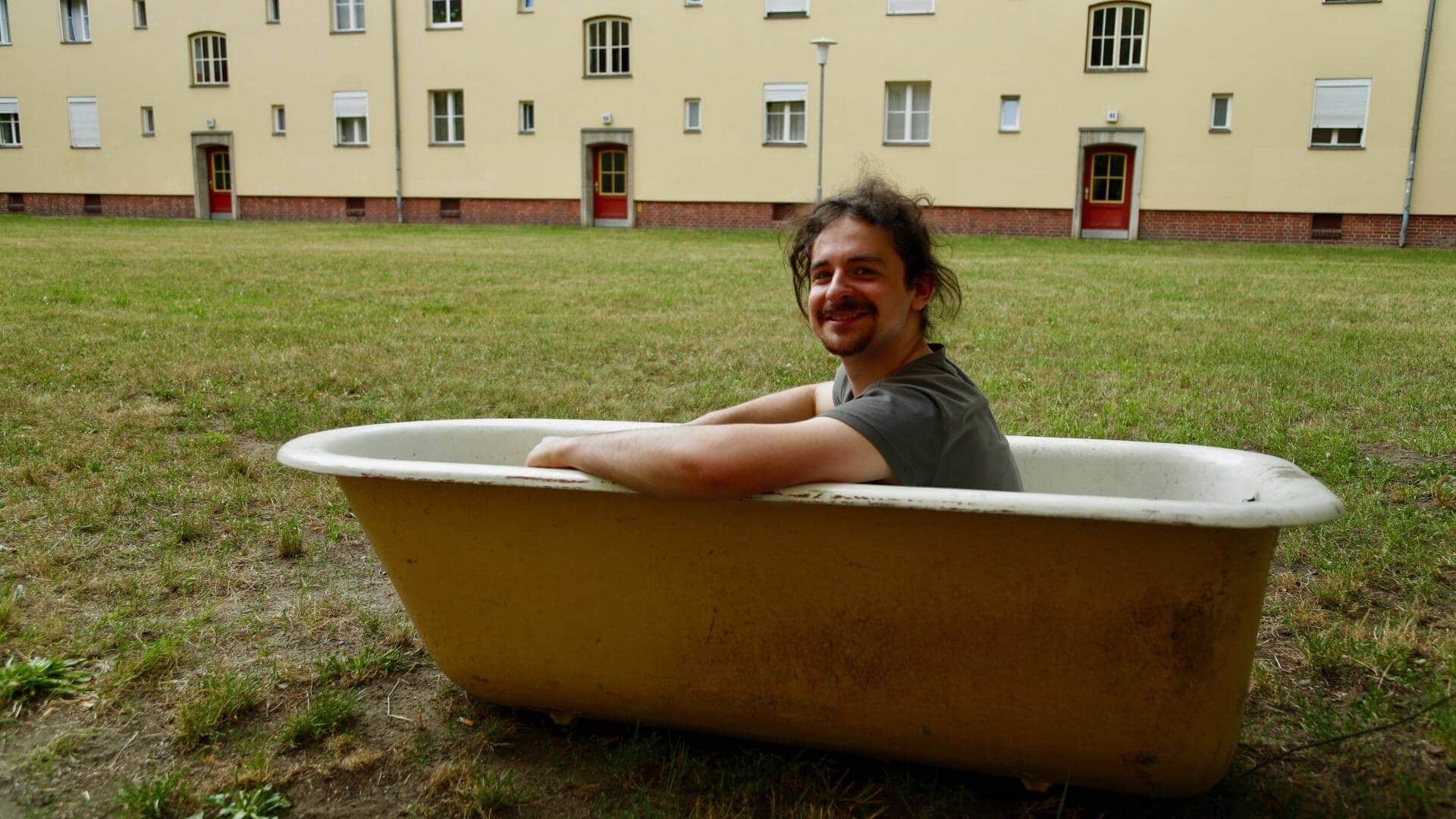




Dir.: Jana Matthes, Andrea Schramm; Documentary with Yaar Harell, Elisies Zavadsky, Rina Kardisch- Zavdasky, Jasmin Harell, Marcel Nist, Sarah Heitz, Nina Paslawska; Germany/Israel 2020, 104 min.
Three generations of Holocaust survivors collide in this documentary debut from German writer/directors Jana Matthes and Andrea Schramm. When 21-year old game designer Yaar, born in Jerusalem, but living in Berlin, develops a Holocaust-themed video game, the older members of his family are slightly offended by Yaar’s stance in blaming his family for giving him a victim identity. But Yaar soon comprehends their viewpoint during his journey into the dark family history.
Yaar then invites his father over for a boxing match – minus the punches – airing his grievance and his plan to explore it further. He then sets off to Krakow where the family was settled before the Holocaust, to develop the game with his friends Marcel and Sarah, and put the record straight. Visiting grandma Rina in Jerusalem is the first step, and Yaar is overwhelmed by her memories.
In Krakow the trio starts to put the game together, but Marcel’s protagonist, the “good SS man Edgar” fails to fit into the narrative. Crucially, does a good SS man really exist?. Visiting the scene where Steven Spielberg shot Schindler’s List, and the nearby camp of Plaszow itself – meticulously re-constructed by Spielberg himself – the site is now overgrown – Yaar’s starts to change his viewpoint, particularly when finding the slogan “Fucking Jews out of Poland” sprayed on the wall of the Jewish cemetery.
Yaar’s father arrives in Krakow, and they meet up with Nina Paslawska whose parents tried to hide Rina and her little brother Roman from the Gestapo in 1939. A family secret soon emerges but Yaar’s game gets put on the back burner: it seems the experiences of Yaar and his generation are emotionally too removed from the generation of his parents and grandparents.
TACHELES is certainly formed by the ambiguous way the directors tackle the conflict. They certainly belong to Yaar’s generation unlike the first generation who often grew up with low self esteem, unable to compete their elders who had failed to make it back from the camps and were hailed as everlasting heroes. There is a generalised feeling amongst the heirs of Holocaust victims of being somehow inferior to their forebears, whose memory could never be sullied and who possessions remained enshrined as sacred relics – woe betide the son or daughter who damaged the favourite plate of a beloved, but dead aunt, whilst doing the washing up.
Overall TACHELES also suffers from being over ‘talkie’, it works best when DoPs Lars Barthel and Andrej Johannes Thieme show the images of the Plaszow camp, or the interior of a church, where the whole truth of Rina’s life is revealed. TACHELES is very much a reminder that Yaar’s generation point of view of the Shoah is “that God fell asleep”. They do not want their children to inherit the misery of the past. AS
SCREENING DURING HUMAN RIGHTS WATCH FILM FESTIVAL | 17-25 March 2022